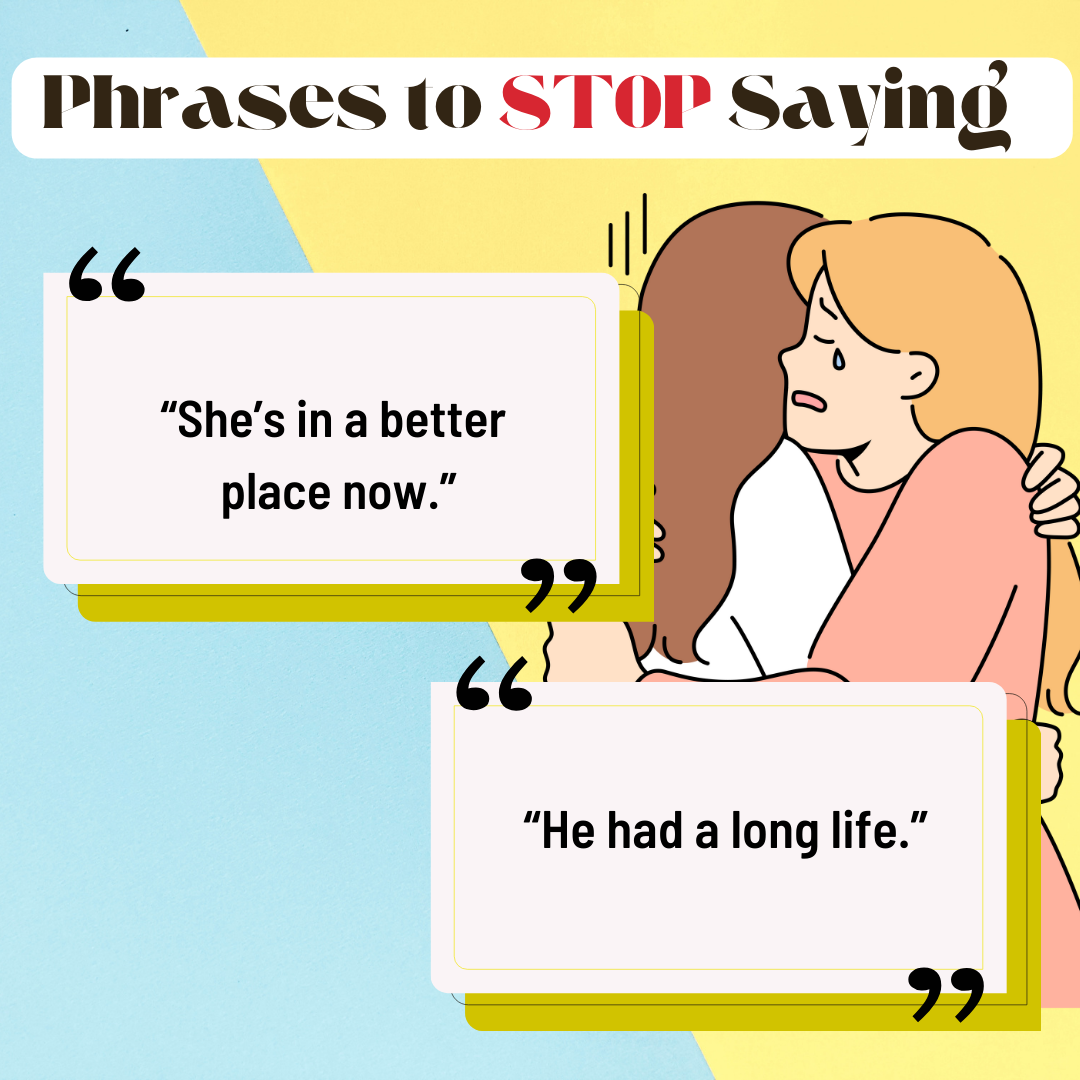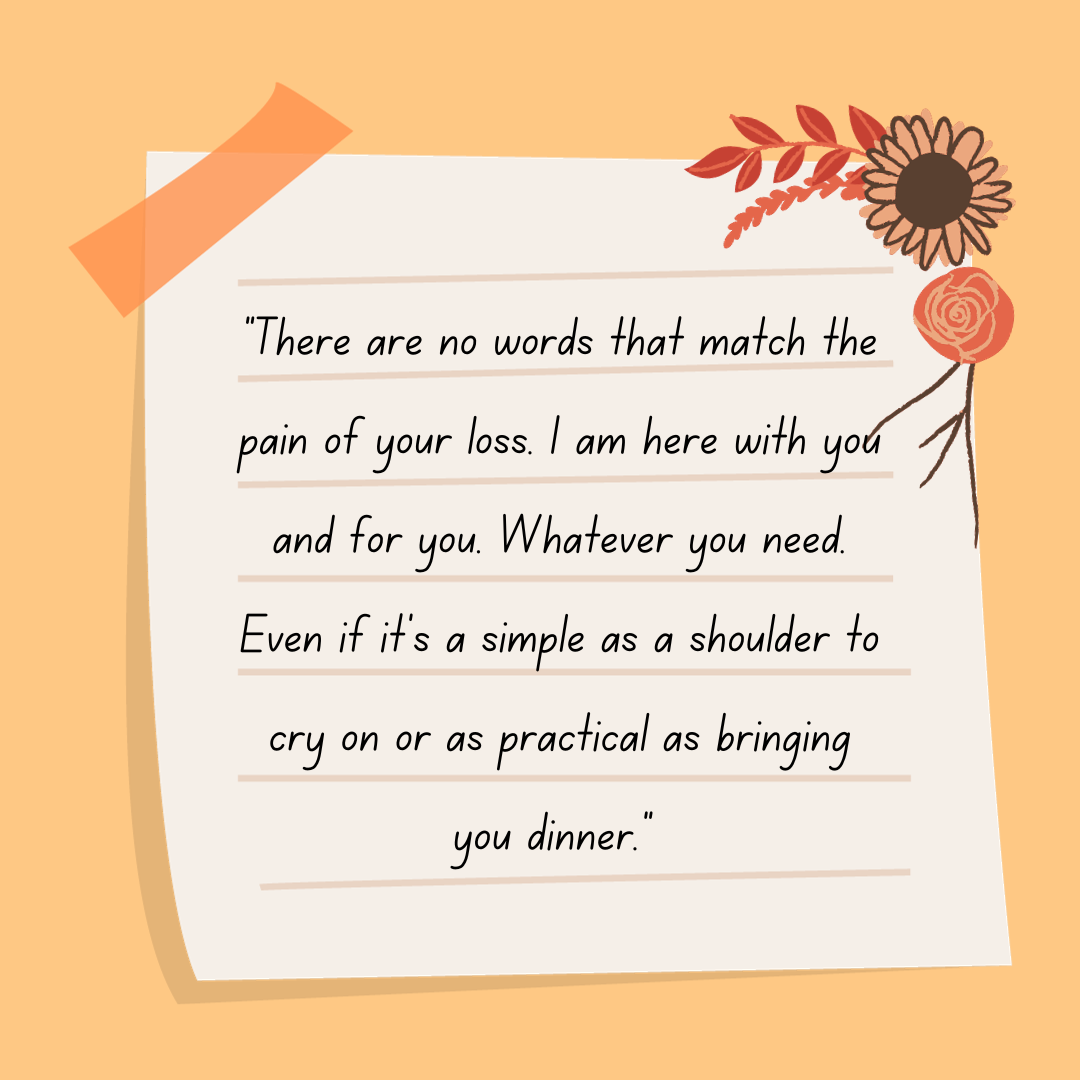What To Say When Someone Dies
Over the years, I have been faced with what to say when someone dies on several occasions. There is a lot that makes it complicated. I worry that my words will fall short. I worry that I am making assumptions about their relationship. I worry that my own feelings/reaction will get in the way of their experience.
What to Say When Someone Dies: Important components
There’s less pressure around how to get it right when we know what components should be included and what should be avoided.
Keep the focus on the other person, even if you are peripherally related to the deceased.
Remember, you can’t make their pain go away. That’s not the point.
Get clear about the goal. The goal is to validate their pain and offer support for what they are going through.
This is not an appropriate time to offer support that is aimed at transmitting your beliefs about what happens after death. For example, “He’s in a better place now” suggests that there is shared belief that there is an afterlife. If you don’t know for sure that they share this belief, don’t put your beliefs on them. That kind of misaligned support can come off as dismissive.
The intensity/level of support offered should match what you know about their relationship to the deceased. If you don’t know much about that relationship then don’t make assumptions just because of how they are connected (for example, don’t assume that the parent-child relationship was strong).
Don’t blame the deceased. This sounds obvious, but happens all the time. People say things like, “He’d been drinking a long time. His body was bound to break down.” If that comes out of the mouth of the person you are supporting, that’s OK. That’s their experience and their mourning, but it’s insensitive to put that on them.
If they died by suicide, don’t make comments that are judgmental. You are allowed to have your own thoughts and feelings about suicide, but it’s important you don’t put those on the person you are trying to support.
Specific phrases to avoid:
“She’s in a better place now.”
“You’re young. You have a chance to start over again.”
“He’s been sick a long time. It was time.”
“He had a long life.”
“They’ve been gone a long time. It’s time to move on.”
“I know how you feel.”
What to Say to Someone Who Lost a Loved One
“I can only imagine what you are going through. This is really hard.”
“I am sorry for your loss. I am here for you.”
“I am so sorry you lost (FILL IN NAME). I know they were your whole world.”
“You are not alone. I am here.”
What To Write in a Sympathy Card
It’s important to abide by the same guidelines discussed above. A sympathy card message allows more space to expand and to be very intentional with your words. Consider sharing something personal about the deceased. This comment should be appropriate, light, and positive. It might even be a short story or memory about the person.
“There are no words that match the pain of your loss. I am here with you and for you. Whatever you need. Even if it’s a simple as a shoulder to cry on or as practical as bringing you dinner.”
“What has happen to you is unthinkable. I can only imagine the void that this has left. I’m here for you and would love to offer you the support that you need.”
“She was such a breathe of fresh air. You were so good to her. You loved each other well. I am so sorry you’ve lost her. It’s a horrible thing to lose a partner.”
Relationship Advice for Women
As always, thanks for reading! We are all about teaching people, especially women, who to have more satisfying relationships. Sign up for our newsletter to receive our newest blogs right to your inbox!



